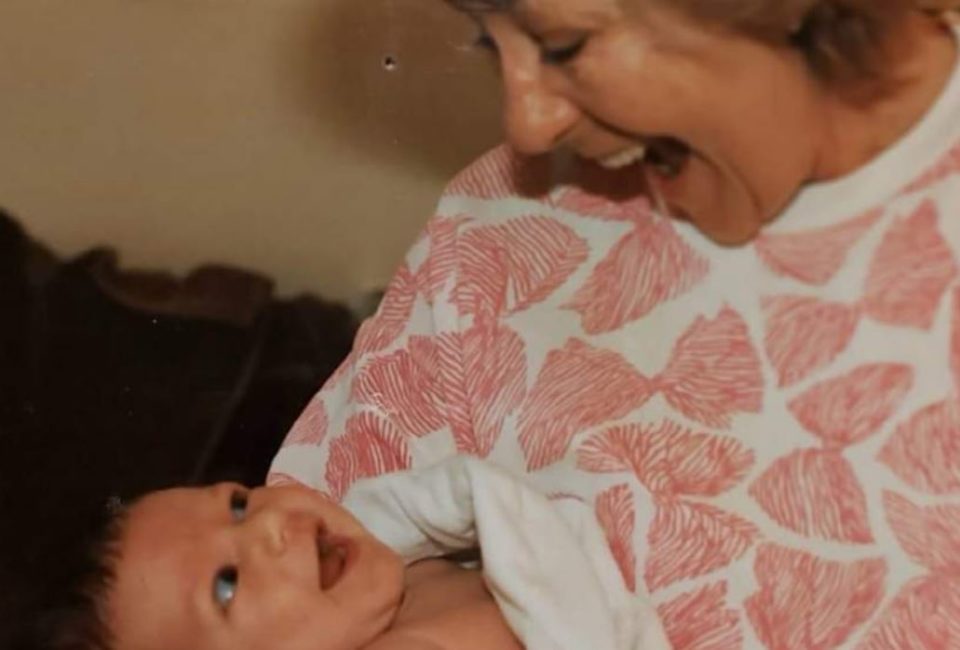¿Are the parents our allies in the evaluation of psychomotor development?
By:
Luisa Schonhaut B., profesor adjunto Facultad de Medicina Clínica Alemana Universidad del Desarrollo.
Ximena Pereira e Ivan Armijo R. profesores, Facultad de Psicología Universidad del Desarrollo.

The first five years of life are critical for building cognitive skills and school learning. It is estimated that 1 in 6 children could have some difficulty in their development, which is a more likely scenario in children born with biological risk factors. Such as certain genetic conditions and prematurity, or in the face of environmental factors, such as low parental education or multidimensional poverty.
Developmental deficits are a heterogeneous group of chronic conditions defined by physical, behavioral, or cognitive functioning difficulties in the first five years of life. Considering that development is a continuum, it is expected that children who present developmental difficulties in the early stages will evolve with difficulties in their executive functions in the long term.
The early detection of those children with developmental difficulties allows an effective and timely intervention that could change the long-term prognosis. In order to ensure the timely identification of children with deficiencies in their development, even the most subtle scientific societies recommend monitoring development during health supervision controls using standardized and valid instruments for this purpose.
Worldwide, different developmental screening tests have been developed, which differ in cultural adaptation, emphasis, and application modalities.
Among these, development questionnaires based on the report of parents or caregivers stand out, which have gained increasing popularity due to their low cost, the little time they require, and the involvement of adults responsible for the care and stimulation of children. In the event of positive screening, a comprehensive evaluation is recommended, either with diagnostic scales or a complete neurological evaluation.
The instrument most widely used in the United States and worldwide is the Ages and Stages Questionnaire (ASQ), whose last validation was in 2009 (ASQ-3). The 4th version is currently being validated. The ASQ consists of 21 questionnaires to be applied to children from 2 months to 5 years of age. Each form includes five domains, with six questions each, that assess different domains of the DSM: such as communication, fine motor skills, gross motor skills, problem-solving, and interpersonal relationships. In the end, there is a section of open-ended questions designed to probe possible parent concerns.
In Chile, in 2008, an adaptation to the linguistics of the ASQ was made for the ages of 8 and 18 months. To determine the validity and reliability of the ASQ, 1,896 children attended different centers of the public system, and the private health care system was included. The scores obtained in the sample of Chilean children were compared with the original version of the ASQ-3, highlighting significant differences only in gross motor skills at eight months and problem-solving at 18 months. So the children in the sample were less “active” in gross motor skills but later more adept at problem-solving, a difference probably related to parenting styles. In the sample studied, the ASQ proved to be reliable, valid, and feasible to use in public and private health care systems.

In longer-term follow-up studies, in a sample of children treated at Clínica Alemana, it has been shown that the ASQ is valid as a predictor of later development, especially if the screening is negative, which means that the child most likely does not have long-term difficulties. Whereas, if the positive predictive value is relatively low, more subtle developmental problems can likely be resolved over time. Although the effect of the interventions in our sample was not studied, studies in different countries are consistent with the results obtained.
Research on the relationship between ASQ results and longterm behavioral and socio-emotional aspects is scarce. In the team’s experience, consideration of gestational age contributes as an essential moderator between the relationship between psychomotor development, general cognitive development, and the development of possible interpersonal problems. The development of longitudinal studies in this aspect is a current need to continue identifying possible protective strategies for the comprehensive development of boys and girls.
It is essential to consider that the prediction has several limitations since numerous factors can modify the natural history of development, including the changes experienced by children, biological and environmental variables, as well as the stimulation of development. Considering that development is a continuum and there is a possibility of emergence or difficulties in specific areas at later ages, the regular and repeated application of developmental screening tests are recommended throughout the first years of life.
At Clínica Alemana in Santiago, an agreement was signed with the publisher Brookes Publishing. Starting in 2020, the ASQ was incorporated into an online version to monitor the development of all infants and preschoolers at six specific ages. This innovation has had a significant clinical impact and, in turn, has made it possible to continue long-term follow-up of children, to add new evidence about developmental trajectories and the predictive capacity of the questionnaires; even in low-risk populations, where difficulties may be more subtle.
During the COVID-19 pandemic, the isolation measures directly affected the most vulnerable population, such as children, who, on the one hand, lost spaces for learning and recreation and, on the other hand, the supervision activities of health. Current studies have shown that it has repercussions on children, especially on their psychomotor and socio-emotional development, presenting more demanding behaviors towards the adults in charge and greater emotional reactivity. In this context, the possibility of remote monitoring of child development through validated scales meant a significant contribution to the health and well-being of children. The advantage of using developmental screening tests involving parents or primary caregivers is that they are undoubtedly the most significant allies who know their children best.
Through the years in which the use of the ASQ has been studied in Chilean clinical environments, we have been able to verify that providing a standard follow-up tool used by professionals (pediatricians, psychologists, nurses, educators, development specialists) and parents, not only empowers parents and caregivers of children but, at the same time, serves as a guide for stimulation. In an essential group of cases, when the parents detected some behavior not achieved by the boy or girl, they tried to stimulate that behavior directly, thus being able to separate cases in which the lag is associated with a lack of particular stimulation from those in which it is not easily achieved.
This act of empowering parents can also serve as an emotional regulator for themselves when they face scenarios in which developmental delays occur and behavioral and socio-emotional problems are detected in children since it allows identifying both the areas as the level of possible lag. This information, used correctly, can help lower levels of stress associated with parenting tasks and support parental coordination, which also serves as a protector for the emotional dynamics of parents as a romantic partner and, in turn, prevent the lack of coordination affects the development of boys and girls.
In contexts in which the development lag is more evident, it also serves as a reference to more precisely identify the areas that show lower levels of progress. At the research level, it has also made it possible to generate relevant data for the study of development follow-up that can be compared internationally with the different centers that use the ASQ as a regular tool.
To the extent that a culture of regular monitoring of development is generated, it is also planned to incorporate the evaluation of socio-emotional aspects and family well-being. For this, it is essential to have a support and support team.
